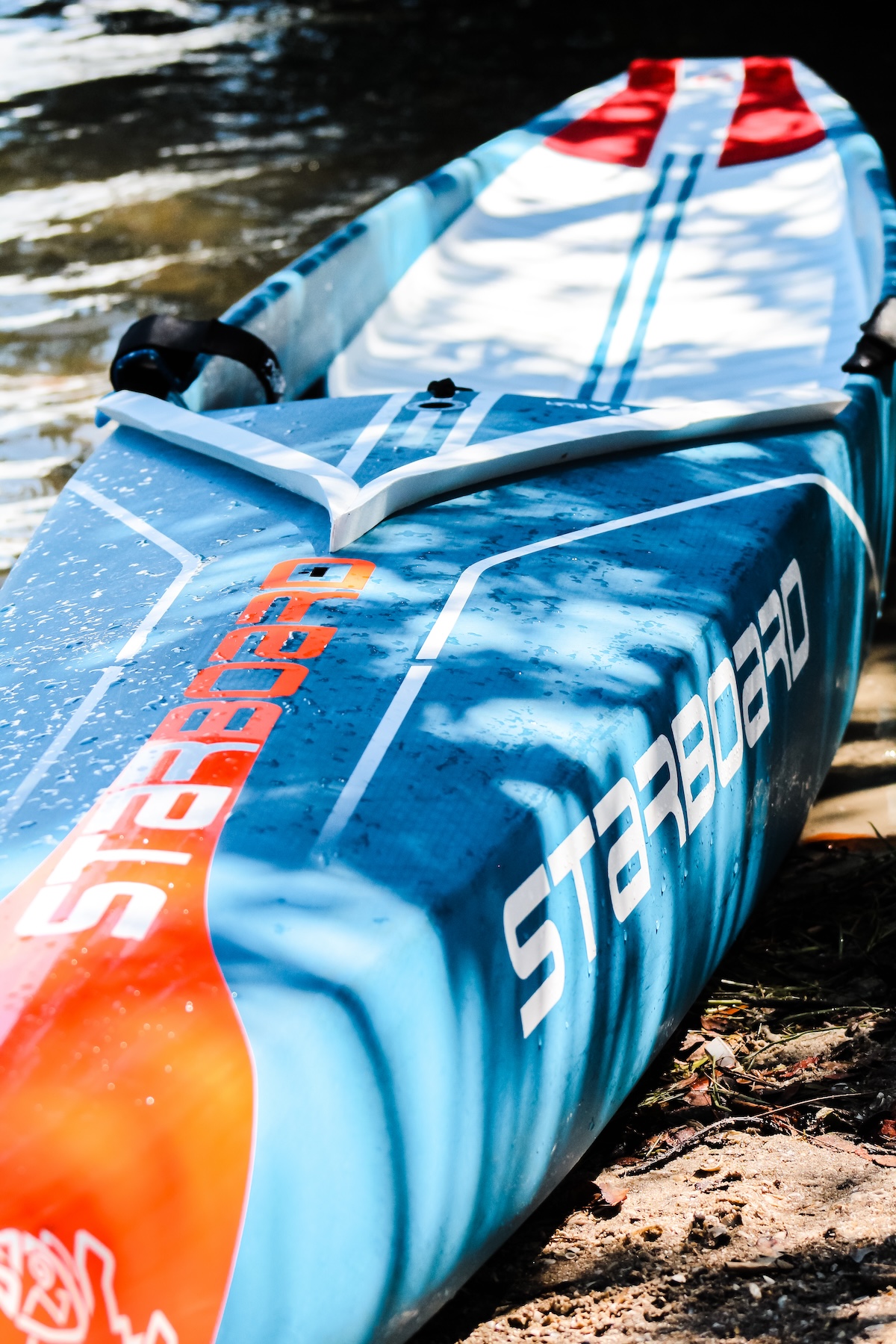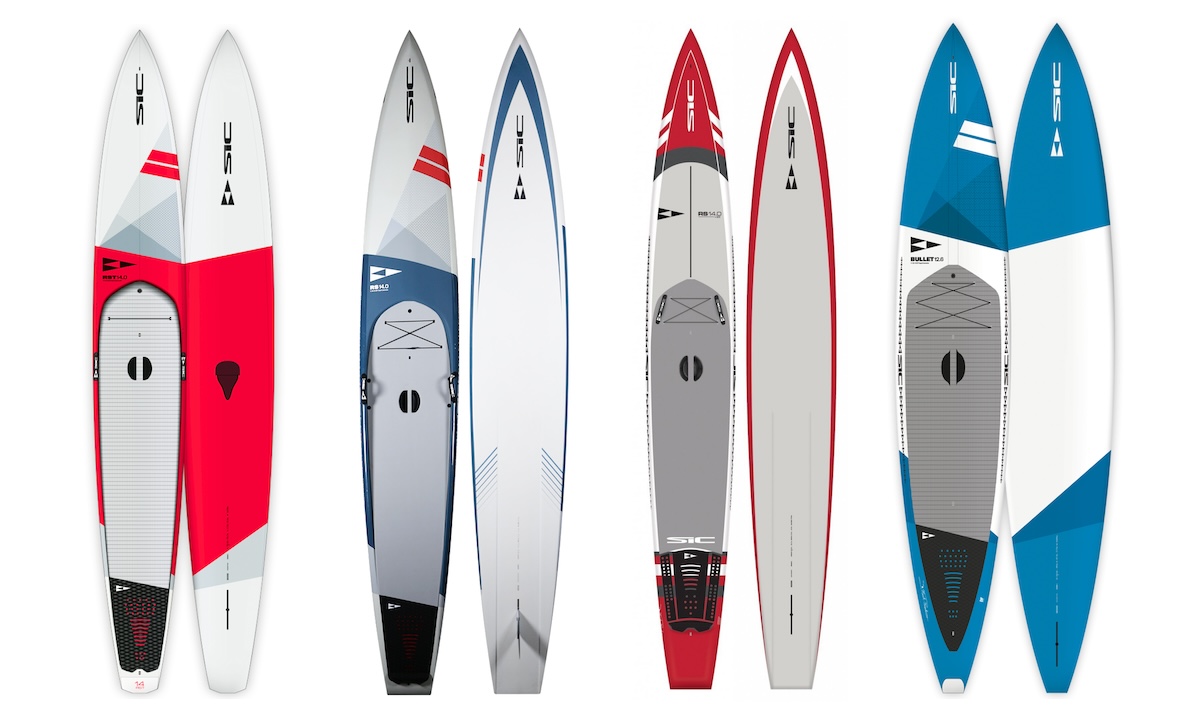What Makes A Quality SUP?
- Written by Layne Pennell
- Published in Opinion
- Comments::DISQUS_COMMENTS
ALBERTA, Canada - With the explosion of stand up paddle boarding, many brands of SUP have appeared in the market. You can buy online, at specialty shops or sporting goods stores. You can even get them at big box stores. Prices vary from as little as $500 to over $3000. There are a lot of options to choose from at a lot of different prices. If you’re thinking of buying a paddle board, it helps to know what qualities make a superior SUP. With this knowledge, you will be able to separate the wheat from the chaff and make a great purchase decision.
Weight
A first rate stand up paddle board isn’t heavy. I know that heavy is a relative term, but if a SUP weighs 40 lbs and is 10 feet long, that is just way too heavy. Boards that weigh this much tend to be in the low price end of the market. Heavy boards are more difficult to carry and lift onto your roof rack, and they take more energy to push through the water. A superior paddle board should weigh around 22-25 lbs for a 10’ long board.
 Durability
Durability
Even if you buy the cheapest SUP in the market, you are still spending several hundred dollars, so it’s important to get a unit that is going to last. Polyurethane shelled paddle boards are strong, tough and take a beating, but they are heavy. Even top brands produce 10’ boards that weigh 35 lbs. Fiberglass boards which make up the bulk of the market are much lighter then polyurethane ones, but they aren’t as durable.
Strength to Weight Ratio
This is the sweet spot SUP buyers should be looking for. You want a paddle board that is as strong as possible while being as light as possible. Currently, the material with the best strength to weight ratio in the marketplace are paddle boards made from carbon fiber. Carbon fiber isn’t the most durable material in the market, but SUPs made from it are stronger and lighter than fiberglass boards which is why you pay the big money for carbon fiber. If you can’t or won’t pay $2500+ for a carbon fiber board, get one made with real bamboo. Bamboo is a good middle ground between fiberglass and carbon fiber paddle boards. It’s almost as strong as carbon fiber which adds strength, and it reduces weight because less fiberglass is used during the construction process.
Superior Construction Methods
The manufacturing process plays an important role in both the weight and durability of your board. Before you buy a SUP, find out how it’s made. Assuming you are looking at fiberglass or bamboo paddle boards, look for manufacturing techniques such as sandwich construction and vacuum bagging. Learn about the different layers of fiberglass, and where they are laid. Just remember more layers of fiberglass means that while the SUP is stronger, it is also heavier, which affect the strength to weight ratio sweet spot.
 SIC Maui has very high-end boards on the market made with extremely strong and light materials.
SIC Maui has very high-end boards on the market made with extremely strong and light materials.
High Caliber Materials
All stand up paddle boards look great when they come out of the box. However, looks can be deceiving. Inferior boards look good at first, but over time the poor quality of materials becomes apparent. Some problems that can arise by using poor materials include quick discoloration from the sun, thin uncomfortable deck pads that peel and lift, and they use bamboo paper instead of real bamboo (looks good but doesn’t have any advantages of bamboo). Ask the salesperson what the boards are made of. Quality brands are happy to tell their stories.
Now that you have a little more knowledge about what to look for in a stand up paddle board, it’s time to start looking. Determine what your budget is, and then look for brands that have the traits of a first rate SUP. Once you have found a board in your price range that meets these traits, you have a winner!
To see more SUP Tips, click HERE.
Were these tips helpful? Let us know in the comments below!

Layne Pennell
Layne Pennell has been stand up paddle boarding for 10+ years and loves all aspects of the sport. After paddling daily while living in Mexico for several years, he returned to Alberta, Canada and brought his passion for SUP with him. Layne teaches paddle boarding to beginners, and his company Wappa Paddle Boards builds environmentally friendly bamboo stand up paddle boards.
Website: www.wappapaddleboards.com/
